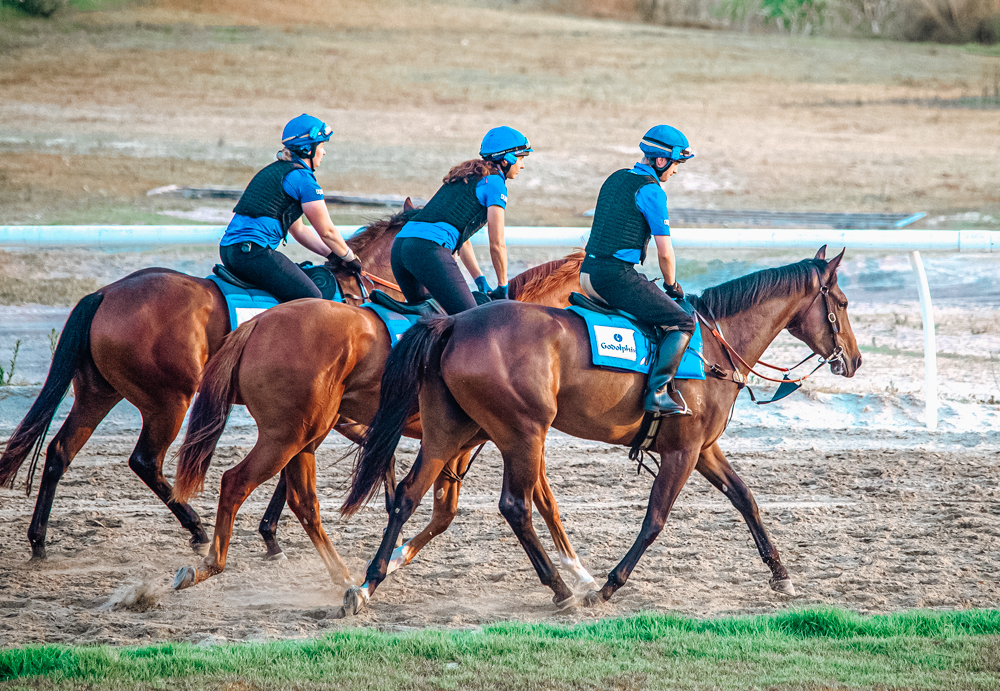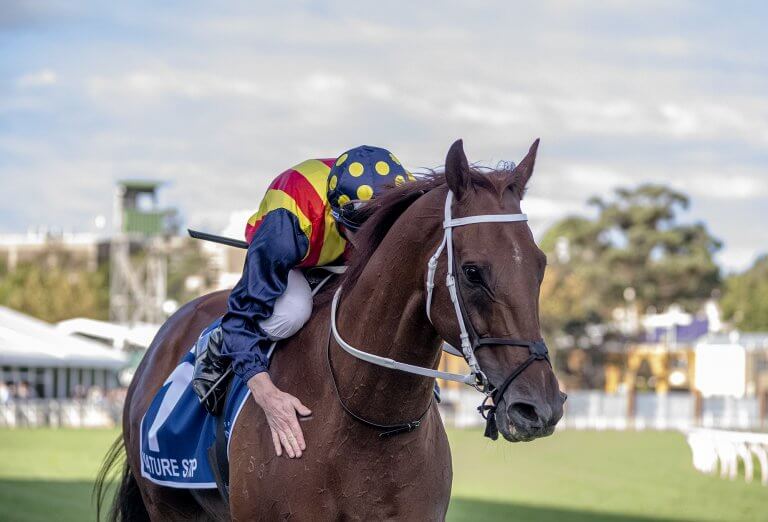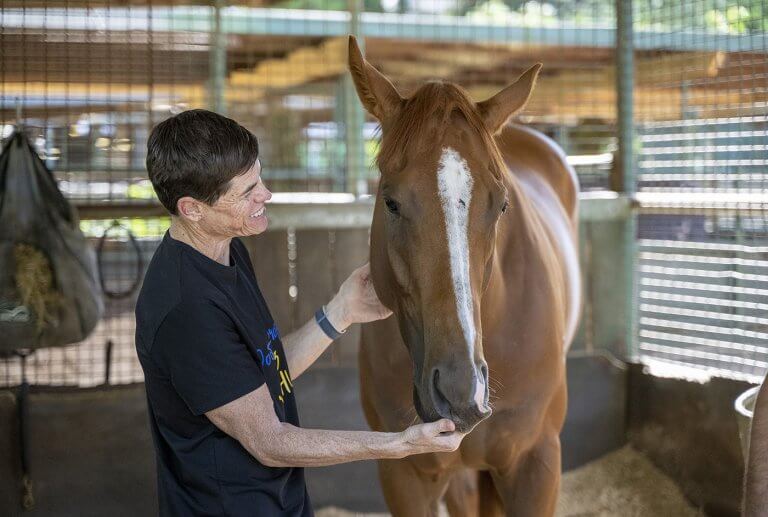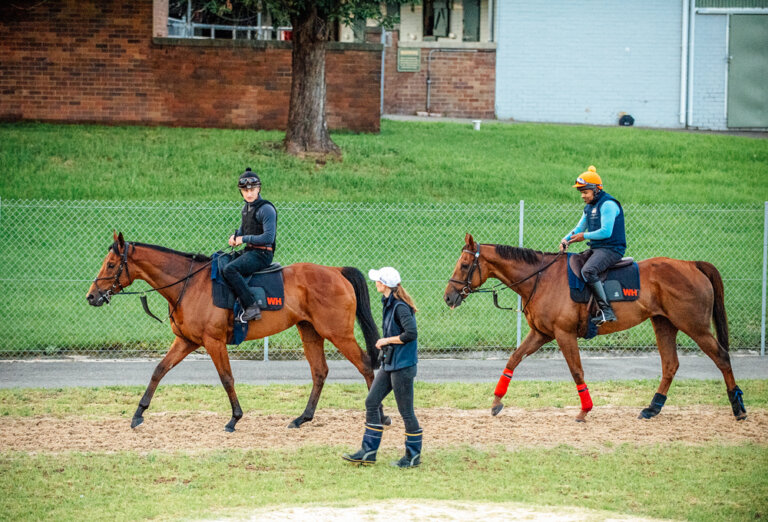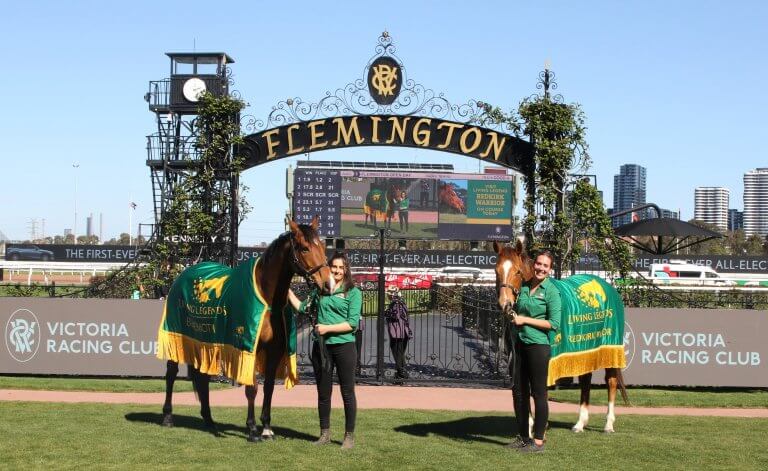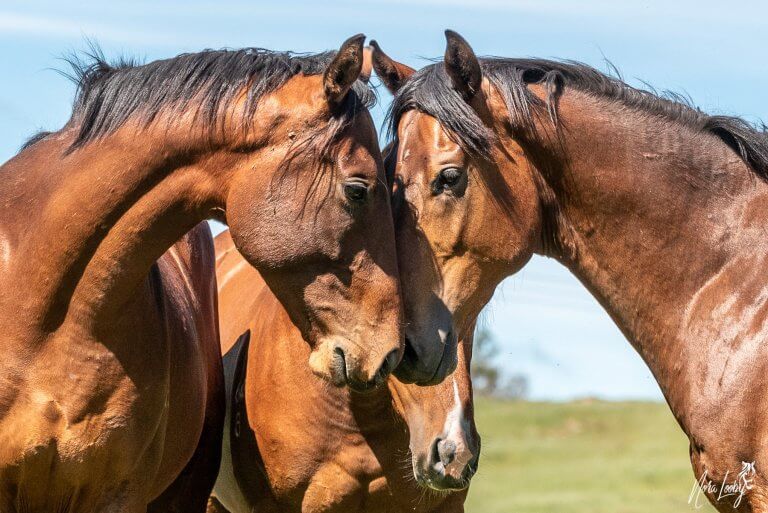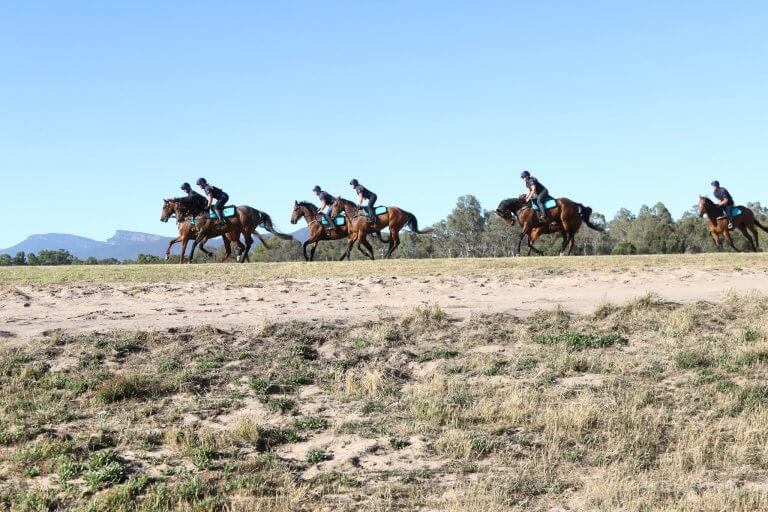Some people believe that thoroughbred racing exploits animals for gambling, financial gain and entertainment.
It is true that horse racing relies on the thoroughbred racehorse; without the horse, there is no horse racing or gambling on horse racing. However, if this is to be framed as ‘exploitation’, then the role of any animal bred for a human requirement in modern society needs to also be questioned.
Animals and humans
Since the beginning of civilisation, animals have been domesticated to serve a role for human requirements: some for food, others for work – and some for companionship, or a combination of all three.
Research indicates dogs were likely one of the first animals to be domesticated by humans, around 33,000 years ago, their attentiveness proving useful for protection and hunting.
It costs on average $100,000 to purchase a racehorse, $3,000 to $4,000 to educate them, and between $30,000 - $70,000 per year to keep them in full training, depending on location.
After dogs, livestock animals such as sheep, cows, and pigs are thought to have been domesticated around the same time that humanity shifted from a hunter-gathering lifestyle to an agricultural society.
Horses are thought to be among some of the first animals domesticated for work. Our relationship with the species evolved as the horse evolved with selective breeding: heavier breeds were used with carts and equipment for manual labour, while more athletic breeds were ridden for transport, exploration, warfare and managing livestock.
Horses bred for racing
DNA evidence has shown genes associated with docile behaviour, speed, endurance and stress resilience were selected to create the horses we know today.
Just as dogs became companion animals after their hunting skills were not required for day-to-day survival, the role of horses changed over time as technology and agricultural practices evolved, and they were no longer required for work tasks; of course, horses do still assist in some societies to this day. As a result, they began to appear in fields of sport and entertainment such as rodeo, jumping and racing.
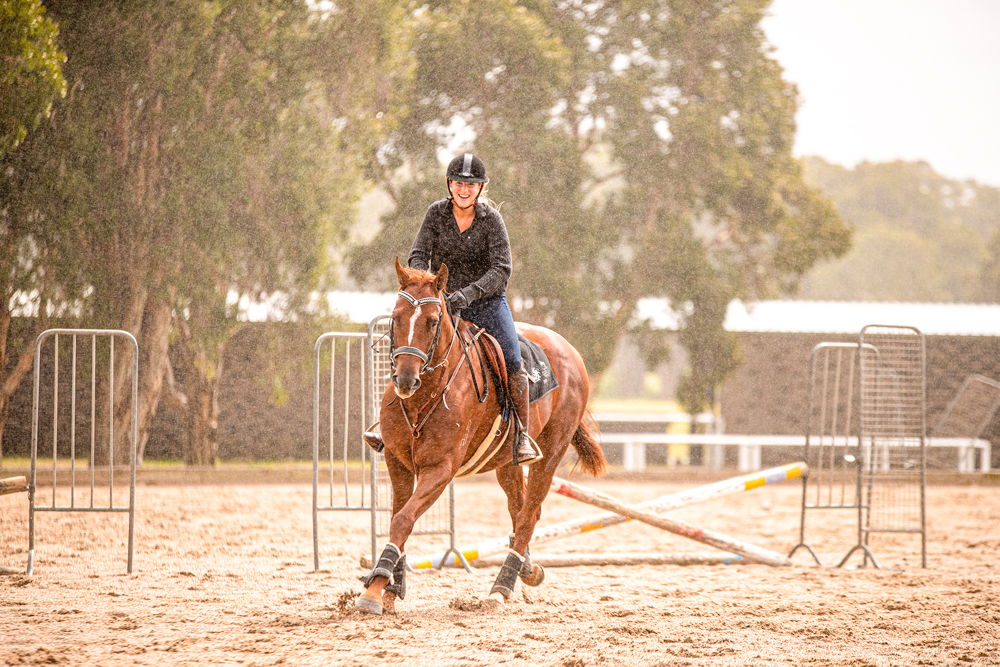
This is not ‘exploitation’ but breeding and utilising the horse in a manner that gives it a purpose, a value and a revered status. Due to their athletic prowess, thoroughbreds in particular carry a significant value as a racing prospect, and post-racing, as a breeding prospect if a female thoroughbred (known as a filly or mare depending on their age) or in other equestrian endeavours if a gelding.
Giving thoroughbreds a purpose as a racehorse ensures they maintain a high value with access to a superb standard of care backed by rules and systems protecting their health and welfare.
It costs on average $100,000 to purchase a racehorse, $3,000 to $4,000 to educate them, and between $30,000 – $70,000 per year to keep them in full training, depending on location. However, in 2021, prizemoney per starter averaged just $25,000 and fewer than 5% made $100,000 a year to cover their costs. So, any owner who is in it just for the money is likely to be very disappointed.
Humans in modern society still enjoy a close relationship with animals every day, in fact, Australians currently have over 29 million pets, one of the highest ownership rates in the world.
Non-pet owning vegans are entitled to their opinion that animals have no place in roles that serve humans in any way.
However, the anthropomorphic argument that horse racing is exploitation, expressed by activists who are still comfortable with eating meat, owning a cat and using leather goods, is hypocrisy.
